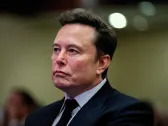
The article discusses how some of America’s richest individuals, including corporate executives like Elon Musk and Tim Cook, exploit loopholes to avoid paying their fair share of taxes. The author highlights several complexities involved in gauging the income of these individuals, including:
- Compensation packages: Companies tend to keep cash components of executive pay as low as possible, while stock options and other equity awards are not subject to payroll taxes.
- Securities and Exchange Commission (SEC) disclosure requirements: While public companies must disclose "compensation actually paid" to top executives, the metrics can be obscure or misleading, making it difficult to determine how much cash an executive actually pockets in a year.
- Loans against assets: The wealthy often borrow against their assets, such as stock or real estate, which are not generally treated as taxable income unless the loan is forgiven.
The author argues that if the wealthy paid their fair share of taxes, Social Security, Medicare, and Medicaid might be solvent enough to expand and extend benefits into the future. However, conservatives and Republicans in Congress have long claimed that these programs are an insupportable burden on America, advocating for benefit cuts rather than increased revenue through taxation.
Some key points from the article include:
- Elon Musk’s income from Tesla is difficult to gauge due to complex compensation packages.
- Tesla disclosed that Musk had pledged over 238 million shares as collateral to secure personal indebtedness, worth about $95 billion at current stock prices.
- The SEC regulation requiring public companies to disclose "compensation actually paid" to top executives can obscure rather than reveal the actual amount of cash an executive pockets in a year.
Overall, the article highlights the need for greater transparency and accountability in corporate compensation practices and tax reporting requirements to ensure that the wealthy pay their fair share of taxes.








